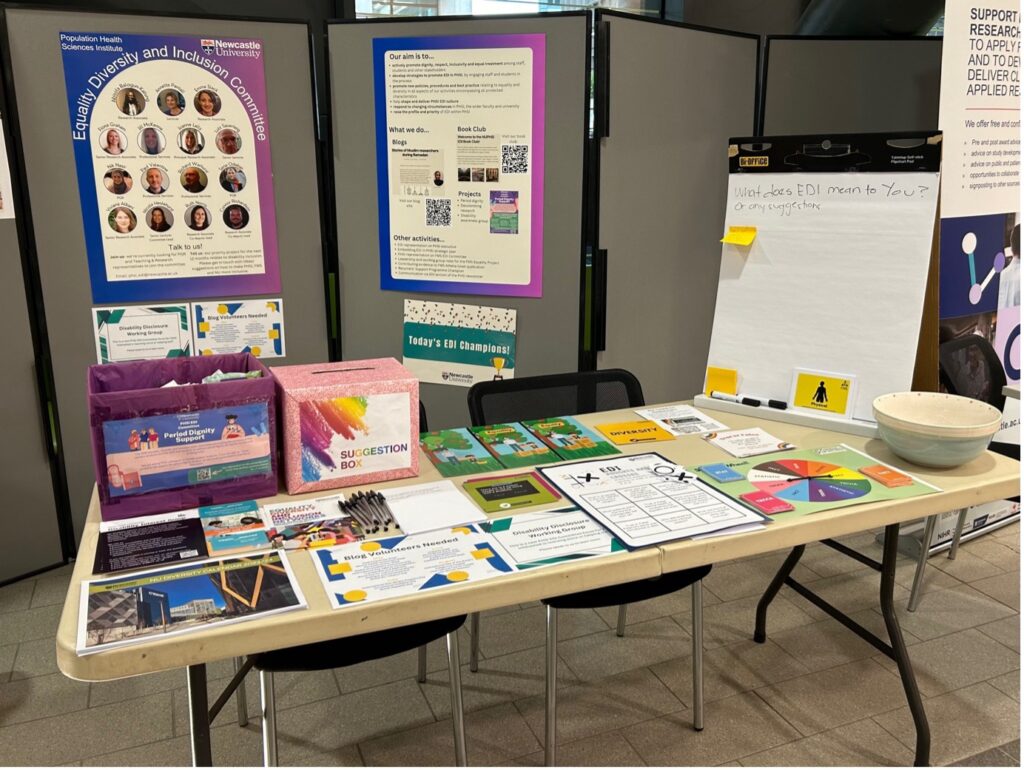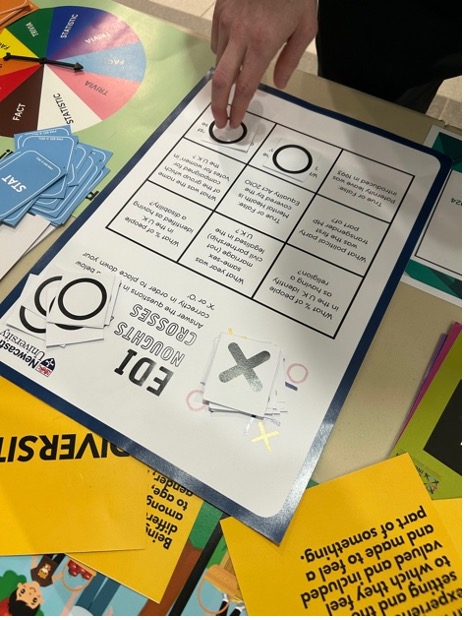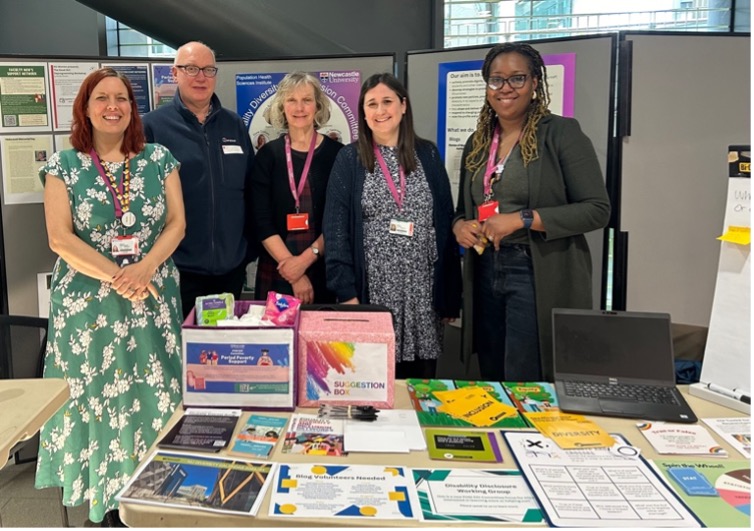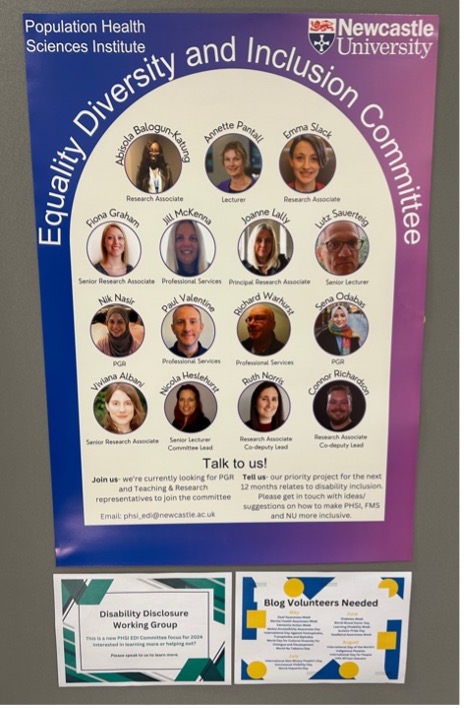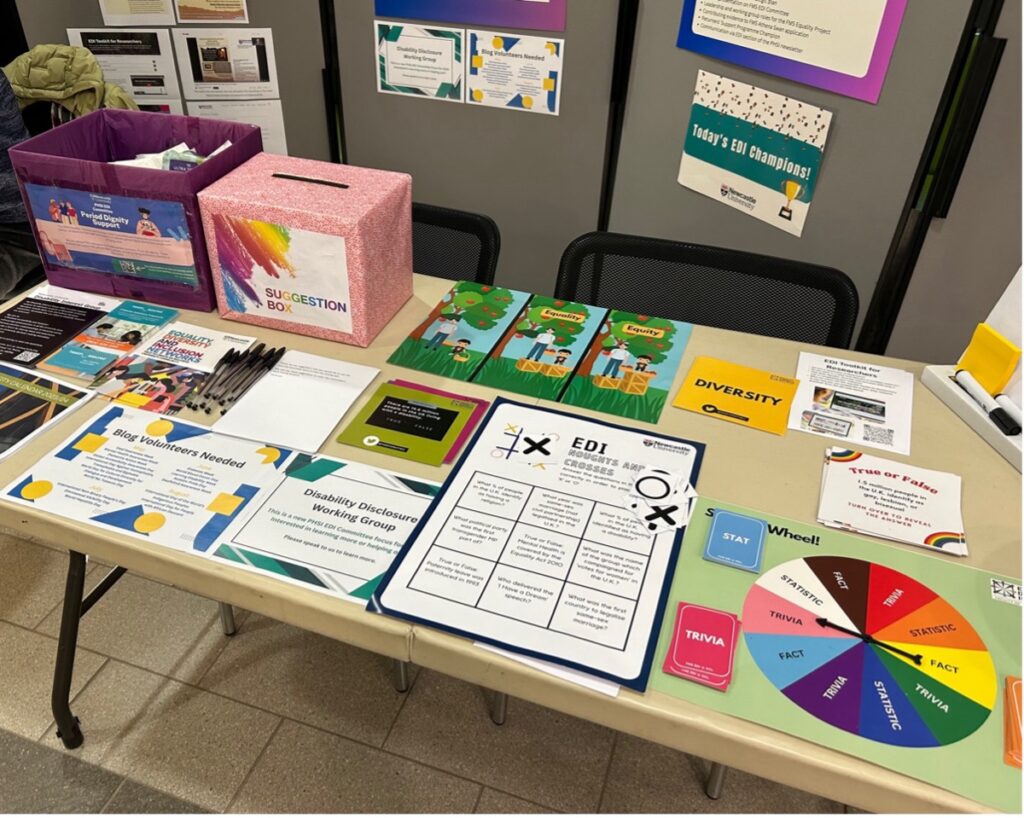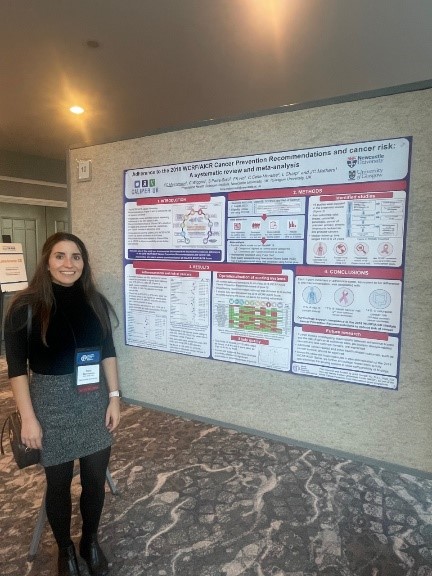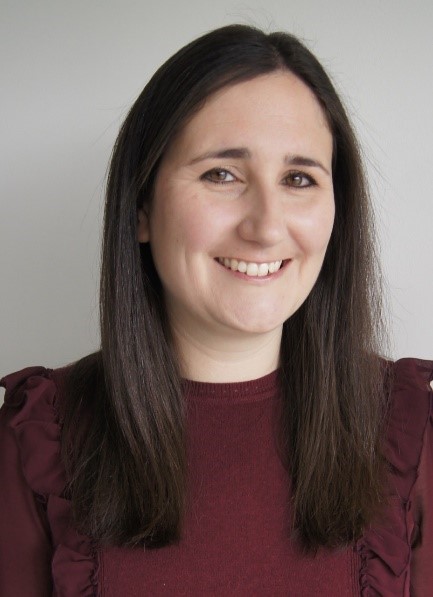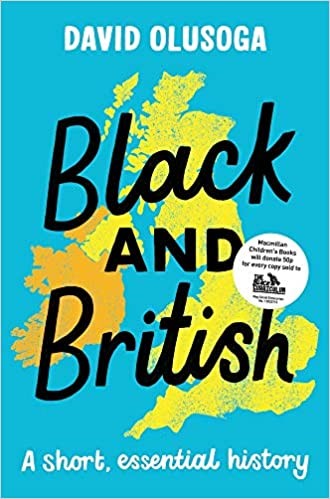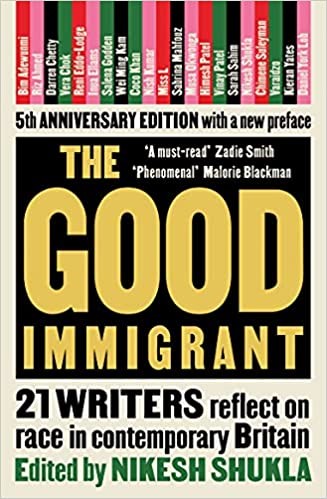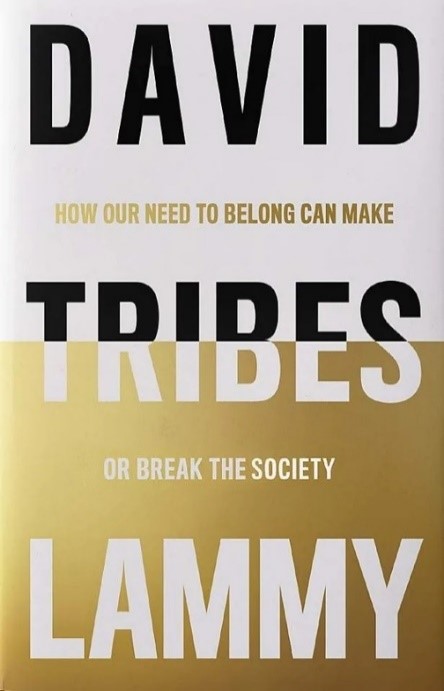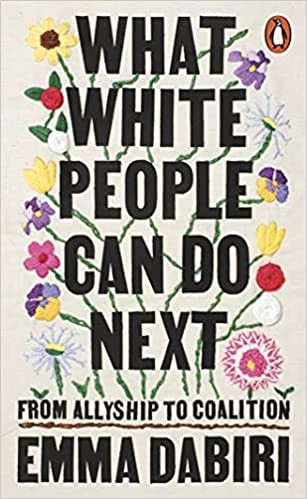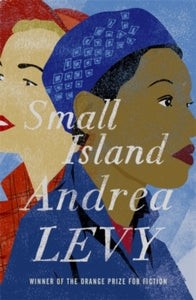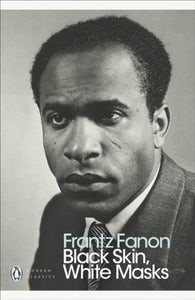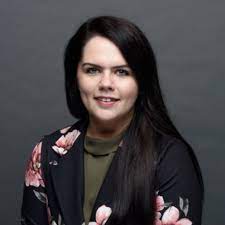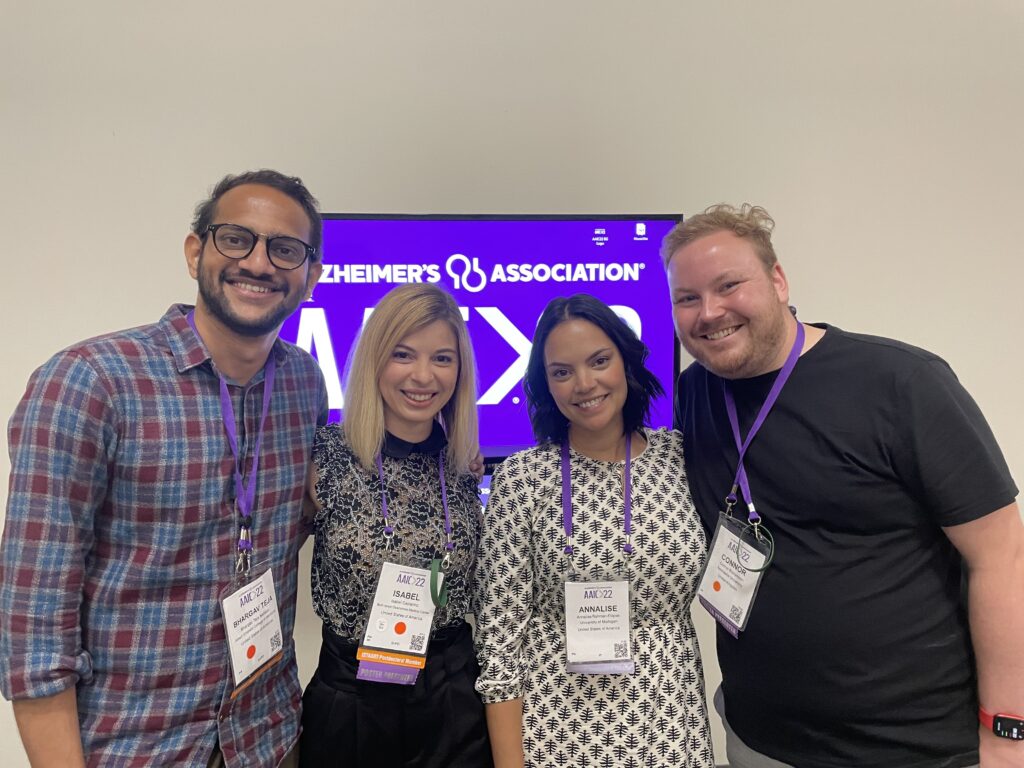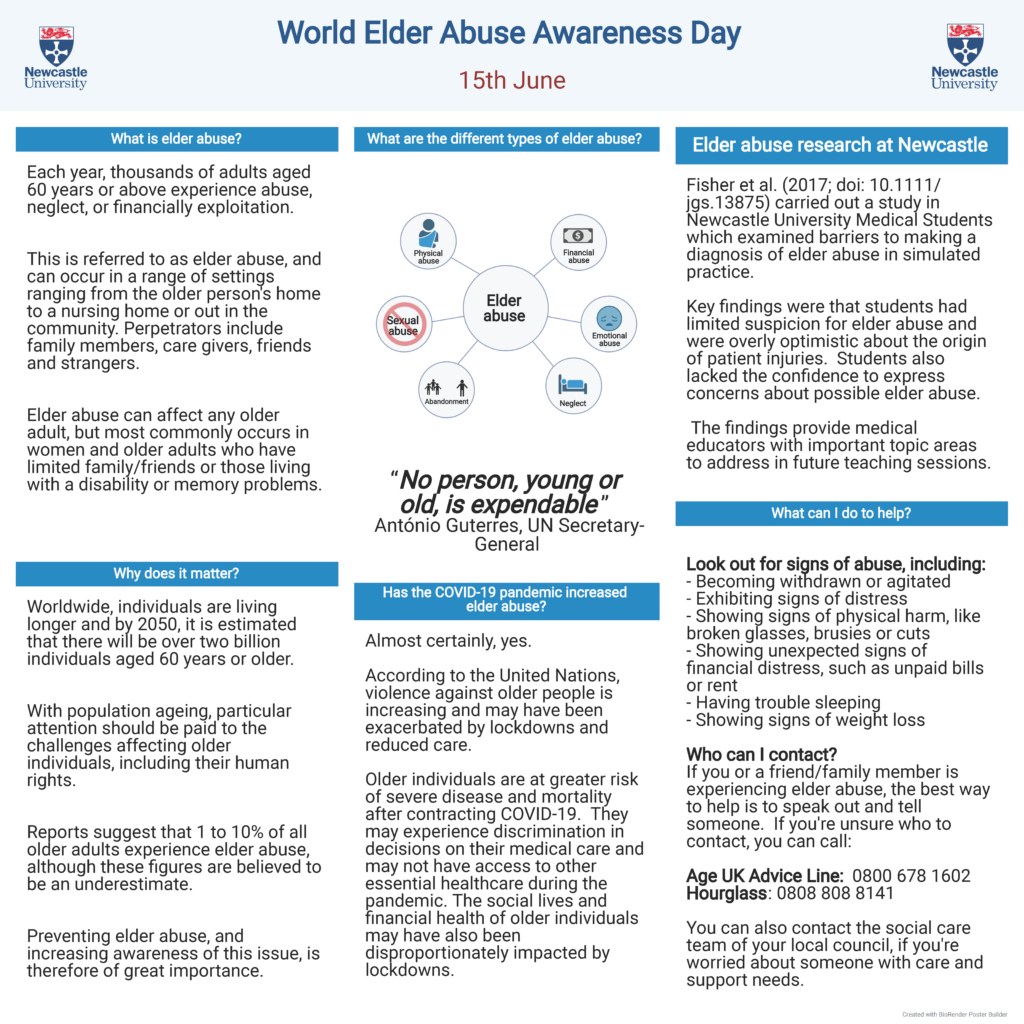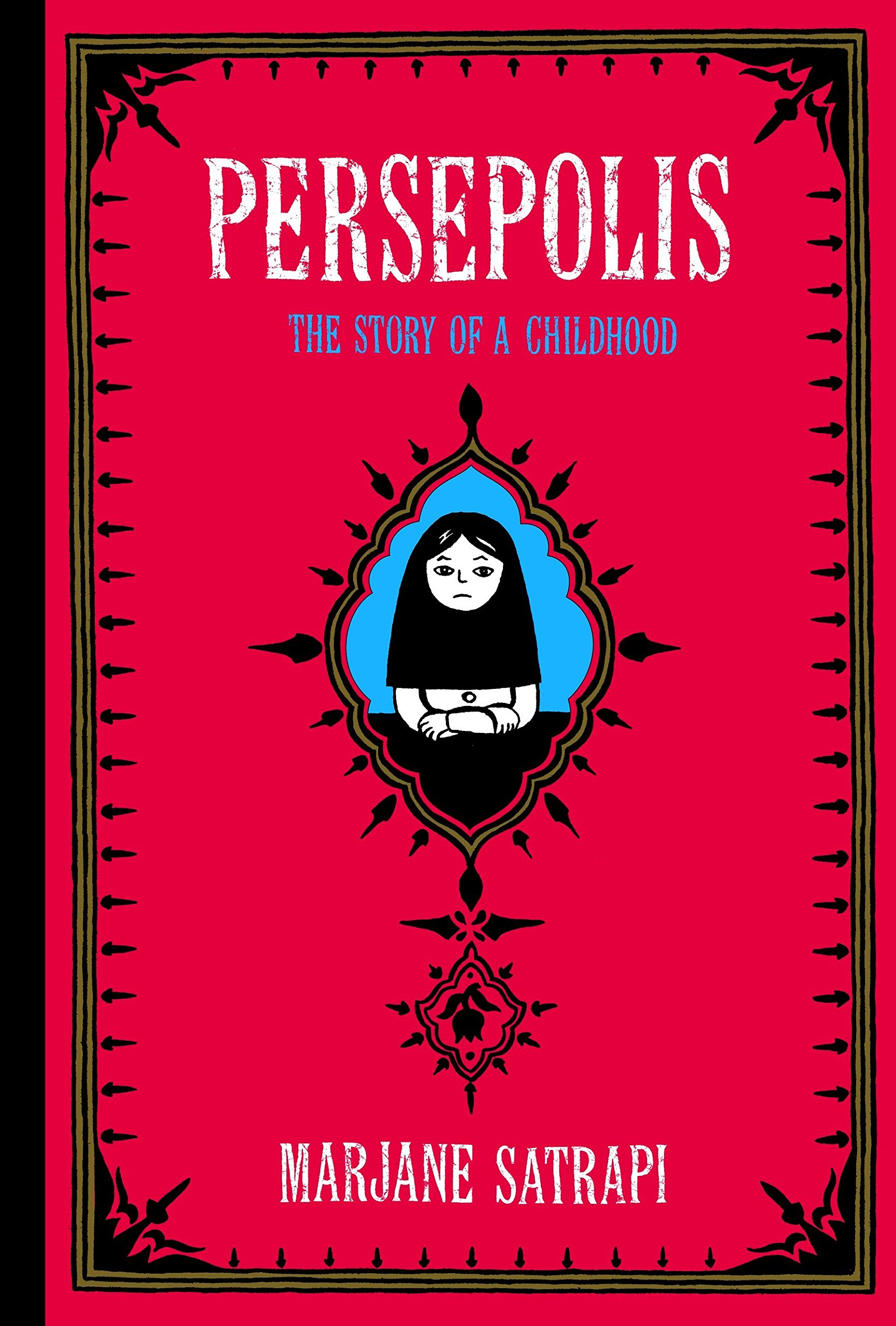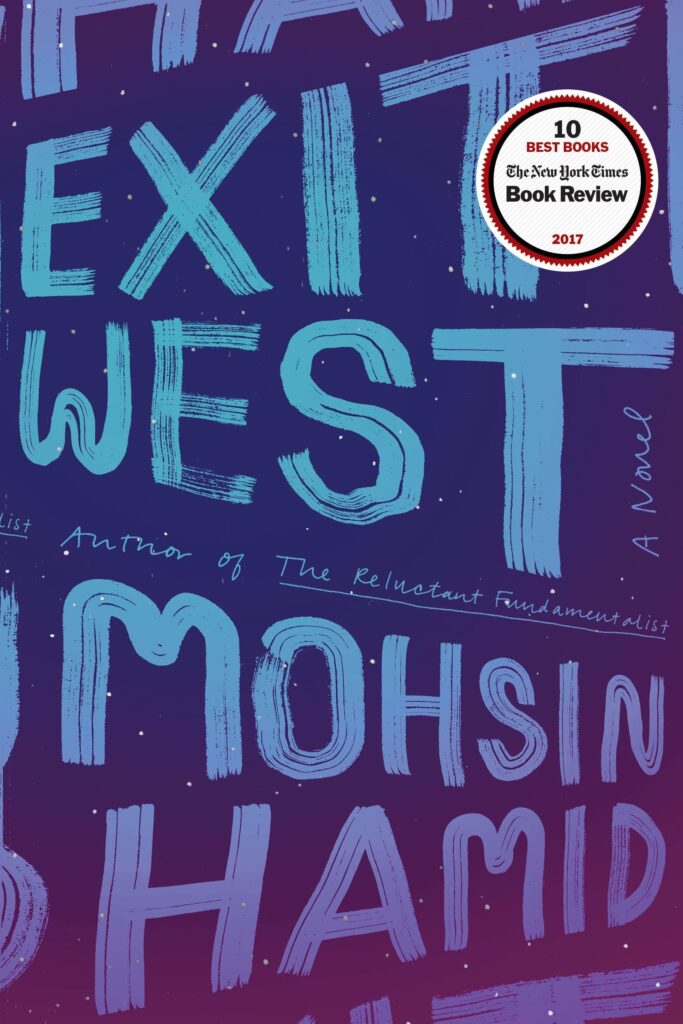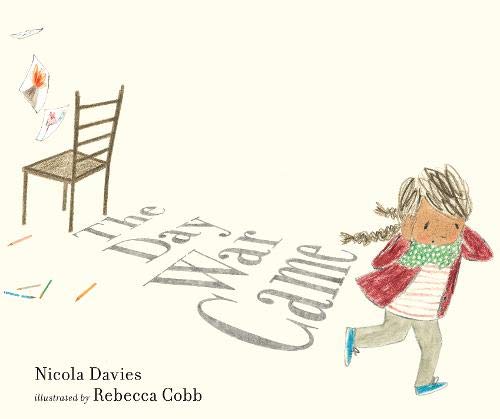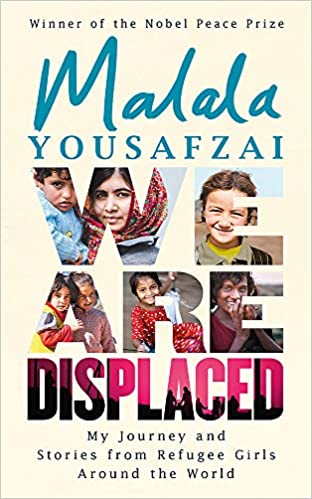By Amber Marwick
Creative Writing MA Student

Northern Pride brought record numbers to Newcastle this year, partnering with NE1 to provide “a more accessible, unapologetically visible pride celebration”. In a pivot from the regular venue of the Town Moor, the Pride in the City festival sprawled entertainment across the city centre in a three-day takeover. As well as stalls and music filling the streets around Greys Monument, the event also saw families enjoying free crafts in the Assembly Rooms, local LGBTQ+ artists performing at the Curious Arts Stage, and party-goers heading to the ticketed arena in Times Square.
Sitting down for lunch on the Grey Street astroturf, we adjusted to the new surroundings. Among the bustle of shoppers and stallholders, the more open atmosphere of the Town Moor was certainly missed. But it was preferable to last year’s arrangement, where the financial pressures on the event were depressingly evident; half of the field had been barriered off as a VIP zone, and those of us unwilling to pay the ticket price peered over the metal fence in annoyance to get a view of the entertainment we’d previously taken for granted.
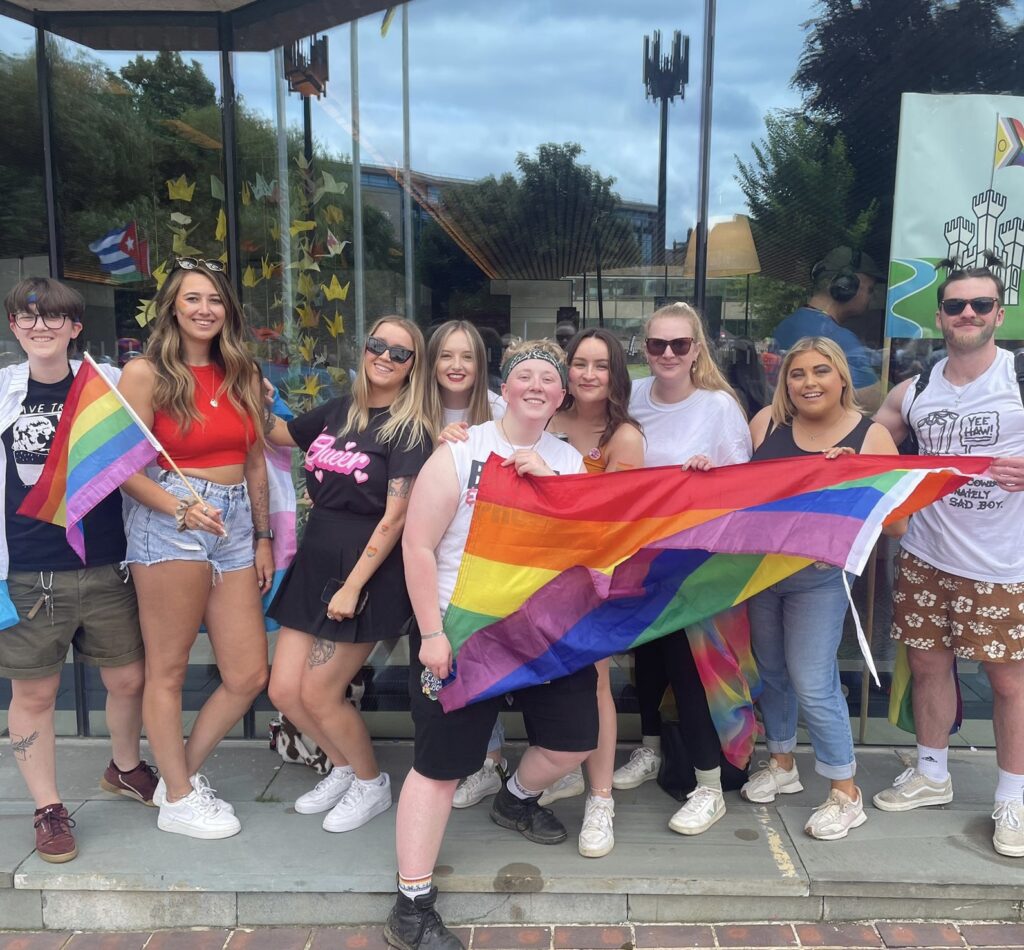
The new programme seems to have been a hit for local business, with data showing it brought £4M to the region. But in the wake of the event’s economic success, we can’t overlook the many freely-given moments of togetherness and solidarity which form the true backbone of the movement. While the entertainment schedule has evolved over the years, the annual march has remained a constant. And as over 16,500 people showed up in the stifling heat to demonstrate, it’s clear that the procession still proves to be the beating heart of the weekend.
This year, there was a renewed sense of urgency amongst the demonstrators. Palestinian flags were raised high among the usual sea of nylon rainbows and banners, and chants for trans rights were interspersed with calls for liberation beyond our own borders. Celebration walked hand-in-hand with outrage, as children blew whistles to the rhythm of “no borders, no nations, trans liberation”, and many laughed at a hastily-made cardboard sign which proudly announced “my cat is gay”. The crowd burst into dance on Northumberland Street to the tune of the YMCA, then into cries of “shame” as it passed Kings Gate- anger at the institution’s response to the ongoing encampment clearly reverberating across communities.
When I first attended Pride nearly ten years ago, I had less worldly concerns on my mind. At seventeen, I was not joining as a politically engaged member of the community, and I wasn’t old enough to enjoy the dance tents or club wristbands that would later form my typical Pride experience. Having yet to move away from home, it was the sense of freedom that drew me in. We sat on the grass as Belinda Carlisle took the main stage, and I watched with a bittersweet feeling- ‘Heaven is A Place on Earth’ was a family-favourite growing up, played often in our kitchen while tea was cooking on the hob. I thought about those many silly moments, all shared with someone that turned out to be less than accepting of my sexuality. A kind stranger offered to paint a rainbow on my cheek with a Crayola-style stick; it was a cheap and frivolous gift, but I was thrilled at the idea of wearing it for the rest of the day, before wiping it all off on the bus ride home.
I couldn’t help thinking about that stranger as we marched this year, my own crayola-style rainbow stick in my pocket, the faces of friends suitably painted around me. Behind us a brass band played Mama Mia by ABBA, and we danced and chanted along while the currents of the procession made its way past the mostly-cheering onlookers. With the cost-of-living weighing harder on those already experiencing barriers to healthcare and threats to personal safety, it was a relief to feel that the spirit of fun had not been lost- the more sombre sense of commitment I began with quickly turned into excited energy. Perhaps it is in these times of wider struggle that the value of Pride is felt the most, where joy and resistance are two sides of the same coin.
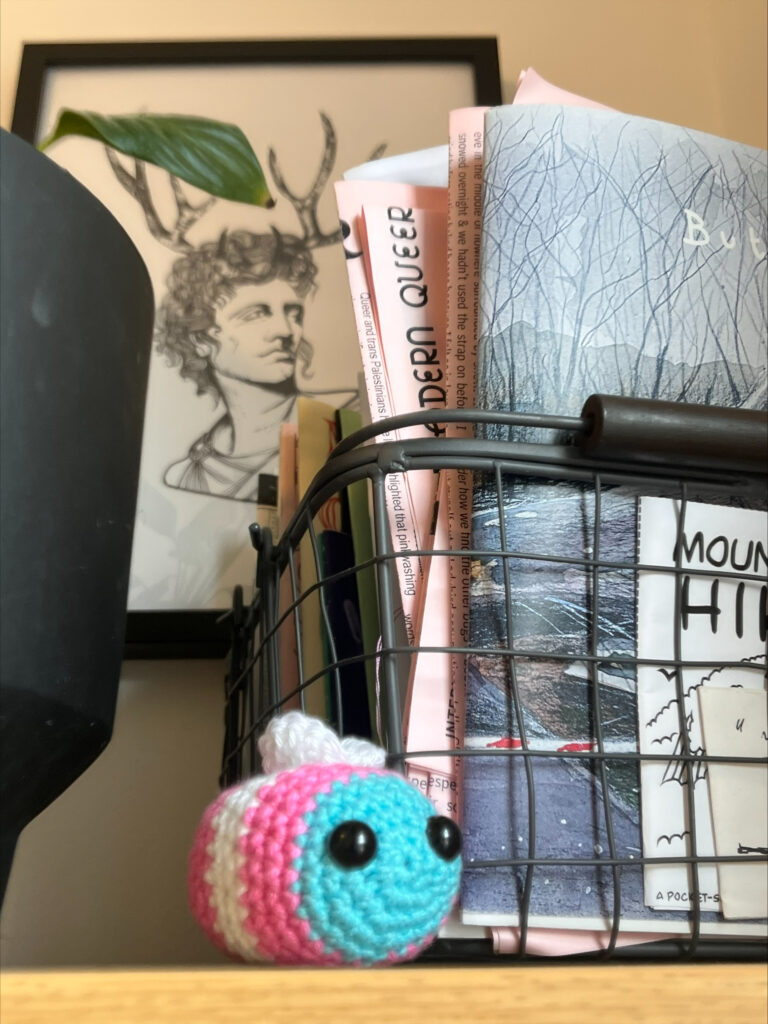
My partner stopped us at one point to wrap a flag around their shoulders, a make-shift shawl of pink, white, and blue. A stranger soon approached to offer a bumble bee, its happy face crocheted in the trans pride colours. It was frivolous, made only for one moment of kindness and fun- in fact there’s likely no problem in the world that can be solved by a crochet bee. But beyond the colourful battalion of the march, we knew well that kindness towards the trans community is an increasingly rare occurrence. When you live something every day, respite is just as necessary as outrage. That small moment of joy had the potential to be a rare gift for someone, and it was one of many that day which revealed that the role of Pride in the community is as important as ever.
When the circuit rounded back to the Civic Centre, there were mumbles of confusion. It seemed that many regular demonstrators were unaware of the drastic change in venue, their attendance at the march guaranteed without the knowledge of ticketed arenas and VIP wristbands. Groups dispersed and scrambled to make their own plans for the day, some disappointed with the abrupt anti-climax, and others eager to explore the new venues and festivities. Amidst the mix of feelings, one thing was abundantly clear while the success of Pride’s event programme continues to ebb and flow with the times, the community’s consistent commitment to Pride sends a powerful message: no matter what happens, we will show up to march.




